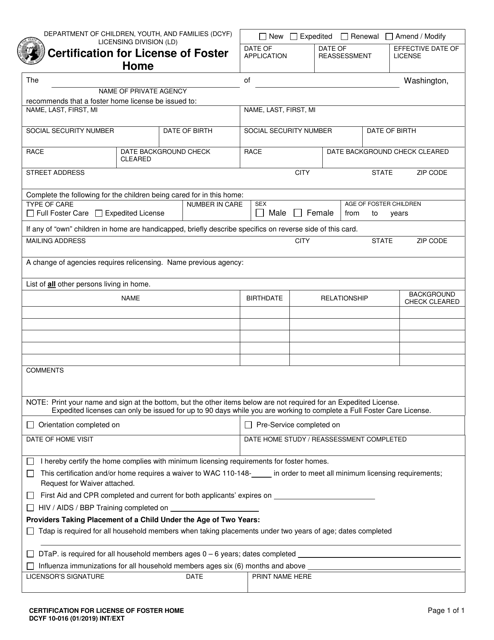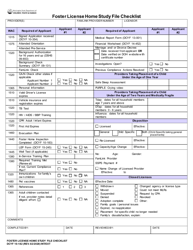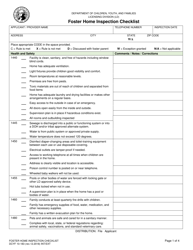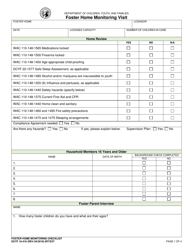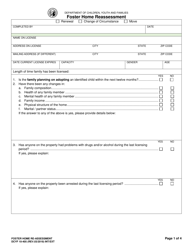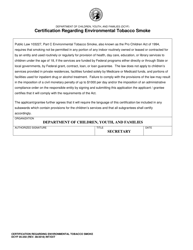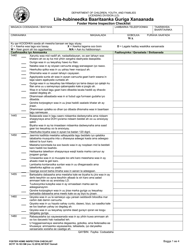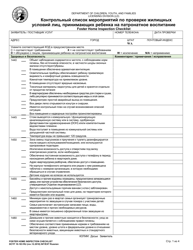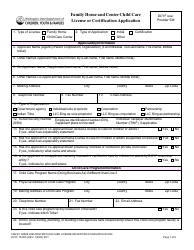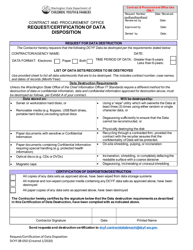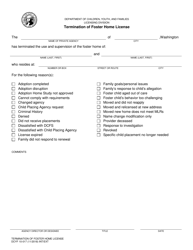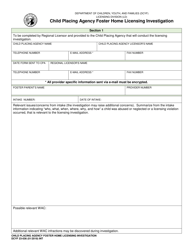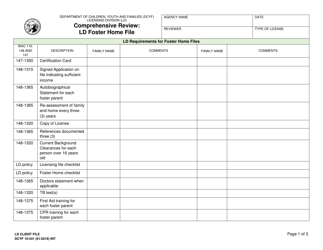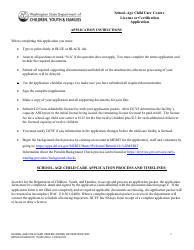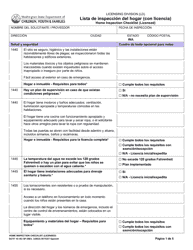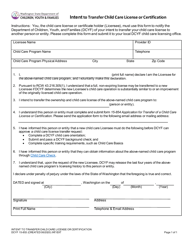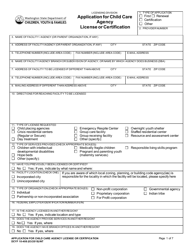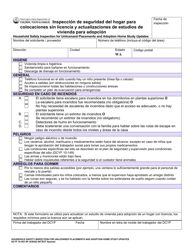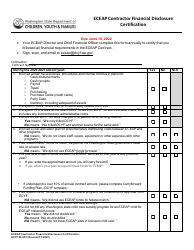This version of the form is not currently in use and is provided for reference only. Download this version of
DCYF Form 10-016
for the current year.
DCYF Form 10-016 Certification for License of Foster Home - Washington
What Is DCYF Form 10-016?
This is a legal form that was released by the Washington State Department of Children, Youth, and Families - a government authority operating within Washington. As of today, no separate filing guidelines for the form are provided by the issuing department.
FAQ
Q: What is DCYF Form 10-016?
A: DCYF Form 10-016 is a certification form for the license of a foster home in Washington.
Q: Who needs to fill out DCYF Form 10-016?
A: Anyone who wants to become a foster parent in Washington and obtain a license for their home needs to fill out DCYF Form 10-016.
Q: What is the purpose of DCYF Form 10-016?
A: The purpose of DCYF Form 10-016 is to gather information about the prospective foster home and to assess its suitability for the placement of foster children.
Q: What information is required on DCYF Form 10-016?
A: DCYF Form 10-016 requires detailed personal information about the applicant and other household members, as well as information about the physical home environment and safety measures.
Q: Are there any fees associated with DCYF Form 10-016?
A: There may be fees associated with the processing of DCYF Form 10-016, such as fingerprinting and background check fees. The specific fees and payment procedures can be obtained from the local DCYF office.
Q: What happens after submitting DCYF Form 10-016?
A: After submitting DCYF Form 10-016, the applicant will undergo a thorough screening process, including home visits, background checks, and interviews, to determine their eligibility for a foster home license.
Q: How long does it take to process DCYF Form 10-016?
A: The processing time for DCYF Form 10-016 varies, but it typically takes several months to complete the screening process and receive a decision on the foster home license application.
Q: Can I appeal if my application for a foster home license is denied?
A: Yes, if your application for a foster home license is denied, you have the right to appeal the decision. The appeal process will be provided to you by the DCYF.
Q: What are the requirements to qualify for a foster home license?
A: To qualify for a foster home license, applicants must meet various requirements, including background checks, home safety standards, and completion of training and orientation programs. Detailed information on the specific requirements can be obtained from the DCYF.
Q: Can I have a criminal record and still be eligible for a foster home license?
A: Having a criminal record does not automatically disqualify an individual from obtaining a foster home license. Each case is assessed on an individual basis, taking into consideration the nature of the offense and its relevance to the safety and well-being of foster children.
Q: Are there any restrictions on the type of housing for a foster home?
A: There are no specific restrictions on the type of housing for a foster home, as long as it meets certain safety and health standards. However, there may be additional requirements or considerations for specific types of housing, such as apartments or shared living spaces.
Q: Can I apply for a foster home license if I am renting my home?
A: Yes, you can apply for a foster home license even if you are renting your home. However, you may need to provide documentation or written permission from your landlord.
Q: What support services are available for foster parents?
A: Foster parents in Washington are eligible for various support services, including financial assistance, training and support groups, and access to resources for the well-being of foster children. More information on these services can be obtained from the local DCYF office.
Q: Is there an age requirement to become a foster parent?
A: There is no specific age requirement to become a foster parent in Washington. However, applicants must be at least 21 years old.
Q: Can same-sex couples apply to become foster parents?
A: Yes, same-sex couples can apply to become foster parents in Washington. The state does not discriminate based on sexual orientation or gender identity.
Q: Can I become a foster parent if I have children of my own?
A: Yes, individuals who have children of their own can become foster parents. The home environment and the well-being of the existing children will be considered during the screening process.
Q: What if I have more questions about DCYF Form 10-016?
A: If you have more questions about DCYF Form 10-016 or the foster home licensing process, it is recommended to contact the local DCYF office for assistance and clarification.
Form Details:
- Released on January 1, 2019;
- The latest edition provided by the Washington State Department of Children, Youth, and Families;
- Easy to use and ready to print;
- Quick to customize;
- Compatible with most PDF-viewing applications;
- Fill out the form in our online filing application.
Download a fillable version of DCYF Form 10-016 by clicking the link below or browse more documents and templates provided by the Washington State Department of Children, Youth, and Families.
